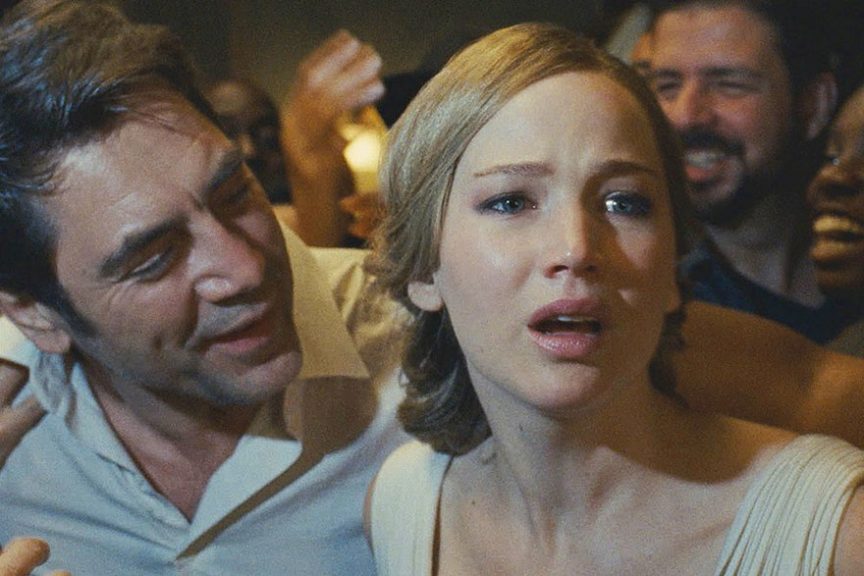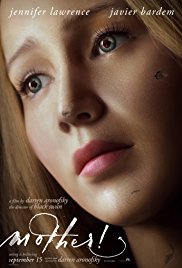Written and Directed by Darren Aronofsky | 121 min | On Demand
Far and away the most controversial film of the year so far, mother! earned an F grade from Cinemascore, indicating Las Vegas test audiences were not at all happy with their experience at the movies. I’m not surprised: mother! is barbed, with claws out for its viewers. It’s also wildly ambitious, abrasively allegorical, a kitchen sink full of Biblical allusion, dreamlike imagery, and unexplained symbolism. I loved it, and fully expect it to appear on my list of the year’s best films.
Aronofsky rotates the camera around Jennifer Lawrence’s face throughout, shot with Super 16 film giving the production a grainy, 1970s feel. Lawrence is nonetheless aglow, giving an immense performance as an innocent driven to a breaking point and beyond, delivering an emotional arc as broad as any I’ve seen in years.
None of the characters are named but for in the end credits. If you need to know, Lawrence is the mother. She’s married to a much older man, a poet, played by Javier Bardem. They live in his grand rural mansion where she’s single-handedly renovating after a fire. He’s too preoccupied to help—frustrated by inspiration having abandoned his pen. One day a stranger arrives at the door, a doctor played by Ed Harris. He ingratiates himself into their space, much to the mother’s dismay. Her husband won’t listen to her, won’t consult with her before making decisions; he continues to open the door to their home, while she’s constantly having to clean up after these obnoxious guests.
The doctor’s wife soon appears, played by Michelle Pfeiffer, and before long their two sons, played by actual brothers Brian and Domhnall Gleeson. What do they all want? The house itself holds secrets, too—something in the basement, and a strange gem the poet keeps in his office.
It would probably be wrong to call mother! a horror, but it does play with tropes indicative of 1970s suspense, refusing to offer any easy answers. What is the thing in the toilet? How does a poet get so much approbation? How does anyone reach the house if there aren’t any roads? Why can’t the mother leave? And what’s in the yellow tincture she drinks for her pain?
This is cinema as dream, so a dream logic applies. The mother’s work, her security, is constantly undermined, and the dreamlike pacing rapidly turns to nightmare as the scenes fragment, tumbling into chaos.
I laughed out loud at the film’s heavy-handed outrageousness—there’s an argument to be made Aronofsky wants this to be a dark comedy hand-grenade about the insidiousness of gender roles, more operatic than his Black Swan, more strangely true to the scripture than his Noah, and more mind-blowing than his deliberately analog sci-fi, The Fountain.
The film may be a riposte to celebrity, a poison pill to the slavering hoards that won’t leave artists alone as well as the celebs who hunger for the love. That’s all of us out here in the dark: It’s not often a movie compels while actively berating its audience. The filmmaker himself is in the line of sight: You never get the sense Aronofsky’s letting himself off the hook as a self-involved creator.
Finally, there’s a good chance this is all just an environmental allegory, the mother being earth itself, offering up everything we need to live and be happy, but it’s not nearly enough. We’ll consume everything she gives us and more until everything’s destroyed.
However you read mother!, it deserves to be read, to be seen. Don’t miss it on the big screen where none of us can escape.









